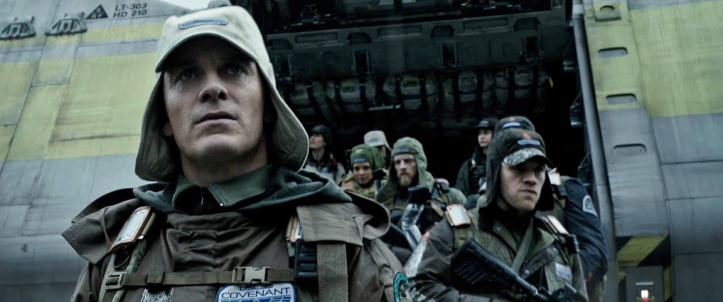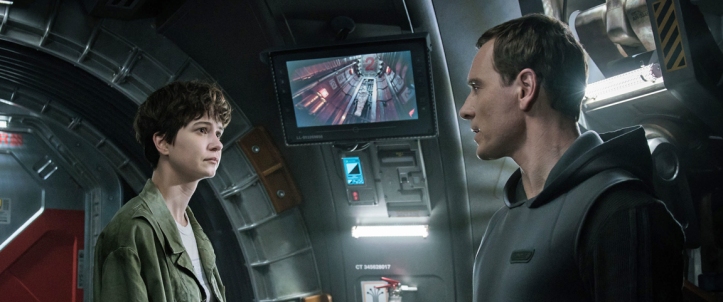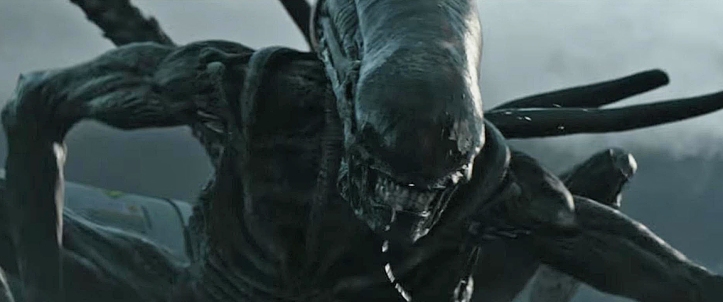“My name is Ozymandias, king of kings:
Look on my works, ye Mighty, and despair!”
~ Percy Shelley’s Ozymandias
In 2012 director Ridley Scott released Prometheus — the quasi-prequel to his 1979 classic Alien. The film was intended as the first chapter in a new series, only tangentially related to the original film. It would take place in the same universe, and would have some references to Alien, but would otherwise explore new territory.
Unfortunately, no-one really wanted Prometheus, with its giant interstellar engineers and weird squid monsters. They wanted another Alien film featuring the original, iconic “xenomorph” creature.
The mixed reaction to Prometheus led to a course-correction. The sequel would not be Prometheus 2 (for which there was no appetite). Instead it was going to be called Alien: Paradise Lost. The franchise was going back to its roots, giving the audience what they wanted. It was going to be a proper, old-school Alien film. In short, Ridley Scott was backtracking.
The first positive sign was the news that Prometheus writers Jon Spaihts and Damon Lindelof would not be involved in the project. Perhaps with better writers on board, the new film would not be plagued by the same bad dialogue and poor characterisation that had marred its predecessor.
The screenplay for the film (now renamed Alien: Covenant) was ultimately written by Dante Harper and John Logan. Harper is primarily a post-production supervisor; Covenant is his only screenwriting credit. Logan has a much more impressive resumé; he scripted Scott’s Oscar-winning Gladiator, and the well-received Bond film Spectre, among others.
Unfortunately, he also wrote 2002’s Star Trek: Nemesis, a film so terrible that it ended the long-running Star Trek series as a viable movie property (until it was rebooted in 2009 by J.J. Abrams) and nearly killed Tom Hardy’s career before it had even taken off.
Many naturally assumed that Noomi Rapace and Michael Fassbender would be reprising their Prometheus roles as Dr Elizabeth Shaw and David the android, respectively. Reports soon emerged that Rapace would not be returning. (In the end she makes a small cameo appearance.)
The signs didn’t look good.

Ultimately, Alien: Covenant tells the story of a crew of space colonists venturing forth to establish a human settlement on a distant planet. En route they receive a radio transmission of apparent human origin emanating from a different, uncharted planet. Despite the dangers, and the objections of his crew, Captain Oram (Billy Crudup) decides to forgo their intended destination and land on the new planet instead.
If the plot sounds similar to Alien, that’s because it is. In that film the crew were space truckers hauling mineral ore, when they received a distress signal from a nearly planetoid, where their investigation uncovered the famous alien creature. Alien: Covenant changes some of the details, but the skeleton of the story remains the same.
The crew of the spaceship Covenant finds David the android apparently living alone on the planet. He has occupied himself by performing strange biological experiments with the black mutagen goo from the last film. The rest of the plot unfolds predictably, with the crew falling foul of various alien monsters. The emphasis is on recapturing the gore and horror of the original film, rather than serving as a meaningful sequel to Prometheus. The questions raised in that film about the mysterious Engineers have been conspicuously abandoned.
As with Prometheus, Michael Fassbender is the highlight of Alien: Covenant. This time he plays two characters; the returning David, and an identical new android named Walter. The interactions between the two are the most memorable scenes in the film. You don’t even think about the special effects required to have two Fassbenders on screen at the same time; the results are seamless. It looks like David and Walter really occupy the same space.
(The names David and Walter are presumably a tribute to long-time Alien producers David Giler and Walter Hill.)
If I have one criticism of Fassbender, his American accent as Walter does not sound especially convincing. Presumably the filmmakers wanted a way for the audience to easily distinguish the two androids, but it’s unnecessary. His acting was already good enough to create two distinct characters without needing to change his voice, or giving him a different haircut.
On a thematic level Prometheus was about a Creator being disappointed by his Creation — the Engineers who seeded life on Earth now wish to destroy us. Alien: Covenant turns the tables; this time the Creation — David — is disappointed with his Creator — Peter Weyland (played once again by Guy Pearse, this time without his terrible old-age makeup).
As an “artificial person”, David considers himself to be superior to the human who designed and built him. Cue lots of philosophising, poetry quoting, and literary allusions from the artsy android. His hubris is perhaps the most clearly defined emotion of any character in the film.

Katherine Waterston plays Daniels, Cpt. Oram’s second-in-command. She is Alien: Covenant‘s obvious attempt to replicate Sigourney Weaver’s Ripley from the original series. Waterston does a fine job, but her character is far less memorable. The rest of the cast aren’t bad, they just don’t make much of an impression. Many of the crew members are supposed to be married couples, but their relationships are never fleshed out in any detail, so this element has no worthwhile payoff. They might as well be strangers.
The alien (played in 1979 by the extremely tall and thin Bolaji Badejo wearing a rubber costume) is now a fully CGI beast. It is surprising that despite being made almost 40 years after the original, the new alien doesn’t look any better than the first one. In fact, some think it looks worse, mainly because of the poor decision to show the creature in broad daylight rather than lurking in the shadows. This seems to break the first rule of monster movies: don’t show the full monster, leave most of it to the audience’s imagination.
Perhaps Scott felt there was no reason to hide the alien, since we’ve already seen it in six films (seven if you count the pseudo alien from the end of Prometheus).
One of the most derided elements of Prometheus was the scene when all the characters removed their space helmets while walking around the unexplored planet. Many critics pointed out how reckless this was; the crew don’t know what sort of alien germs might be in the air. In Alien: Covenant, the crew don’t even put on space helmets to begin with, as if Scott is mocking his detractors.
The real-world explanation for the lack of helmets is simple. In Alien, the spacesuits worn by the cast were extremely cumbersome. The actors couldn’t see or hear very well, and it was difficult to record their dialogue. To make matters worse, they couldn’t breathe properly, and would occasionally faint on set. On top of that, it was difficult for audiences to tell the characters apart. Scott’s decision in this regard is understandable.
Dramatic license beats realism.
Something more difficult to explain is the extreme foolishness of the characters. These people are supposed to be highly professional colonists who have trained tirelessly to adapt to the challenges of their new environment. Instead they make a series of catastrophic errors bordering on slapstick.

That said, the film is not without merit. Dariusz Wolski’s photography is beautiful, and the production design is to a very high standard. Ridley Scott films never look cheap or rushed. Scott is also to be commended for at least trying to make a hard horror film in the manner of the original, rather than the lighter sci-fi style of some of the sequels.
You almost have to feel sorry for Scott. Prometheus attempted to take the franchise in a new direction, but was not well-received. Alien: Covenant attempts to go back to basics, and ends up playing like an inferior copy of the original. He just can’t win.
It seems that the Alien universe isn’t very versatile. Out of eight films — Alien (1979), Aliens (1986), Alien 3 (1992), Alien Resurrection (1997), Alien vs Predator (2004), Aliens vs Predator: Requiem (2007), Prometheus (2012) and Alien Covenant (2017) — only the first two are universally acclaimed (although the third one has its fans).
Perhaps it’s time to just leave the series alone. As Ridley Scott himself once said: “the beast is dead”.
If only he had listened to himself.

I too prefer the rubber suit alien over the CGI ones.
LikeLike